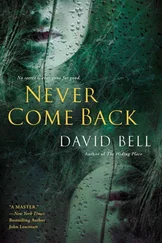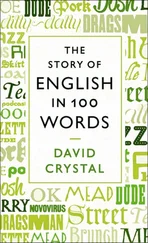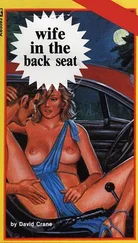One day I took a corner too fast and smacked my head on a skirting board. There was blood everywhere. I was scarred for life. Literally. I still bear a tiny scar in between my eyebrows of which I was immensely proud as a child. And now I don’t drive. Can that be a coincidence? No, I say it CANNOT be a coincidence. Before that crash I was a fearless speed junky. I was destined for Formula One greatness. Also I was brimming with infant brain cells of which the crash must have led to a holocaust. My timorousness, my lack of a driving licence, the tiny mark on my face, my B in GCSE Biology all stem from that moment. If you don’t like this book, blame the corporate child abusers who made that deathtrap walker.
Maybe everyone is fearless in infancy and what marks us apart is our ability to absorb fears – some of us are made of sponge and soak them up while others are resistant willows that have to be repeatedly painted with the linseed oils of caution to prevent cracking from the dehydrating effect of their own imprudence. And, before you ask, no I haven’t lost control of that metaphor: I’m saying some people are thoughtful, sensitive types like me while others are wooden-headed idiots as a result of whom every foodstuff has to carry an over-cautious ‘Use by’ date. I think I should bloody sue.
I carry on along my road towards the Kilburn High Road. In many ways the Kilburn High Road isn’t very nice – it’s messy, often crowded, usually gridlocked, has a large number of terrible shops selling cheap crap, lots of places selling dodgy kebabs, about two others selling kebabs that are probably okay, pawnbrokers, pay-day loan sharks, old Irish pubs, closed old Irish pubs, closed old Irish pubs that have tried and failed to go gastro, closed old Irish clubs that have tried to go a bit nightclubby, the worst branch of Marks & Spencer in Britain and a little paved area which was almost certainly designed by ’60s planners to give the place a sense of community but is primarily used by people trying to encourage you to become Christian or Muslim with the use of leaflets, megaphones and sometimes both. There’s also an Argos.
But I like it. You probably saw that coming. I expect you’re expecting me to say that it’s vibrant next. Well it is. And also, I’m used to it and I tend to like what I’m used to. I’m not going to be here much longer but I expect I’ll come back and visit. (I expect I won’t.)
Oh, and also it’s on a Roman road, which I like. I get a sense that there’s something genuinely ancient about Kilburn as a scuzzy little strip development along the Roman road into London: that London needs, and has always needed, these little pockets of grubby prosperity. And so, as well as liking the vibrancy and familiarity, I’m comforted by the thought that Kilburn is a constant in a changing world. When the recession hit in 2008, a lot of Kilburn’s pound shops and garage-sale-style outlets closed, like weeds knocked back by a harsh frost. But they grew back in the next few months, with different names but the same displays of stuff which I can’t imagine anyone ever wanting to buy. I found that cheering.
My parents like Kilburn – they liked it as soon as I moved in, despite making the mistake of eating in the greasy spoon café at the end of my road. They’re not fussy eaters but they hate bad service. They used to be hotel managers – in the 1970s, the era of Fawlty Towers and of a Britvic orange juice being an acceptable starter. But I think they were good hotel managers, for the time. That’s what they’ve always led me to believe, and they’re not, in general, boastful people.
When I was born they were joint managers of the White Hart hotel in Salisbury. They weren’t from Salisbury – my mother grew up in Swansea and my father in Liverpool – but they’d met on a degree course in Glasgow, where they were studying hotel management. And then they got married and became hotel managers and got a job working for a hotel chain and were posted to Salisbury. Posted in the military sense. I think they probably went by car.
So: Ian and Kathy Mitchell, a husband and wife running a West Country hotel in the 1970s. But instead of a Spanish waiter, they had a baby, who they kept in the cleaners’ cupboard when they were working. This was primarily because it was a large enough cupboard to have a phone in it. By which I mean, it actually had a phone in it. Almost every cupboard is large enough to have a phone in it, otherwise it’d barely be more than a box attached to a wall. I mean large enough to warrant the fitting of a phone line. So it was really a sort of terrible room. Or an amazing cupboard.
Anyway, it was where they kept the cleaning equipment for the hotel. The first word I ever said was ‘Hoover’. I didn’t even know that other brands of vacuum cleaner were available.
And the relevance of the phone? It was so I could order stuff on room service. And also so that it could be put on ‘baby monitor’, which meant that someone on reception could listen in and hear if I was crying, rather than asleep or dead, which very different states share the attribute of not requiring immediate action.
They stopped being hotel managers when I was two and we moved to Oxford, where my dad got a teaching job at the polytechnic. The decision was always explained as being to do with me – that running a hotel and family life were incompatible – which I suppose makes sense. Then again, thinking about it, my friends with children seem to find the first two years of childcare the most onerous and it always seems the impact on their careers is lessened thereafter. So maybe my parents were sick of running hotels for other reasons and rationalised it as a family decision, or just very wisely expressed it to me that way so I’d feel grateful at their sacrifice rather than irritated that they no longer had interesting jobs.
I was a bit sorry, as a child, that they didn’t run a hotel any more. And that when they had, I’d been too young to notice anything more than an industrial Hoover. (My first adjective was ‘industrial’.) (It wasn’t.) I love hotels – they’re fun and fascinating – and having one to run around in, albeit carefully and with a beady eye fixed on sharp skirting boards, would have been brilliant.
And I wanted there to be a place of which my parents were in charge. I’m hierarchical like that. I wanted them to have people working for them rather than just lots of ‘colleagues’. That makes me sound like a bit of a megalomaniac. But my hunch is that most children are like that. Ideally, my parents would have been a king and queen. Failing that, hotel manager seemed to me a bit higher up the scale than ‘people who teach hotel management at a polytechnic’. When I got older, a different snobbery came to bear: the polytechnic became a university and ‘university lecturer’ seemed better than ‘hotel manager’ – more to do with learning and less with trade. So my view changed over the period of my minority as I changed from one kind of little shit to another.
This will be grist to the mill of people who think I’m a posh twat. ‘Listen to him, nasty little snob,’ they will be thinking. They will also probably be wondering why they’ve bought a copy of his book. Or maybe not. Perhaps there’s a constituency of people – the most rabid online commenters, for example – who actually seek out the work of people they loathe. They may be skimming each page with a sneer before wiping their arse on it and flushing it down the loo. Or attempting to post it to me. If so, I’d like to say to those people: ‘Welcome! Your money is as good as anyone else’s.’
But of course being a snob and being posh are different things. Being a snob, a conventional snob, involves wanting to be posh whether you are or not, and thinking less of people who aren’t. Wanting to be posher, usually – which is why the very poshest people are seldom snobs: they know they can’t be any posher so it’s no good wishing for it.
Читать дальше












